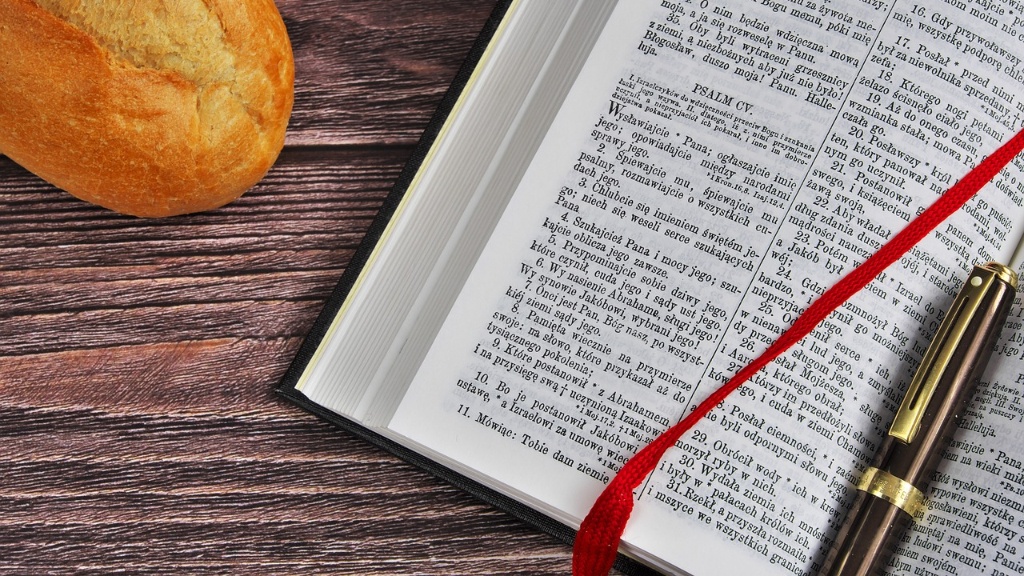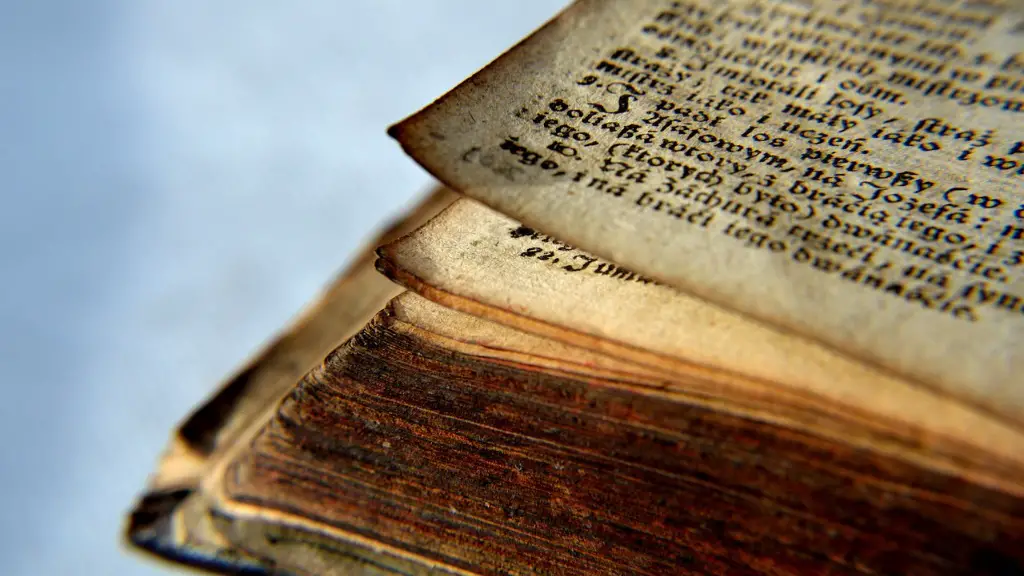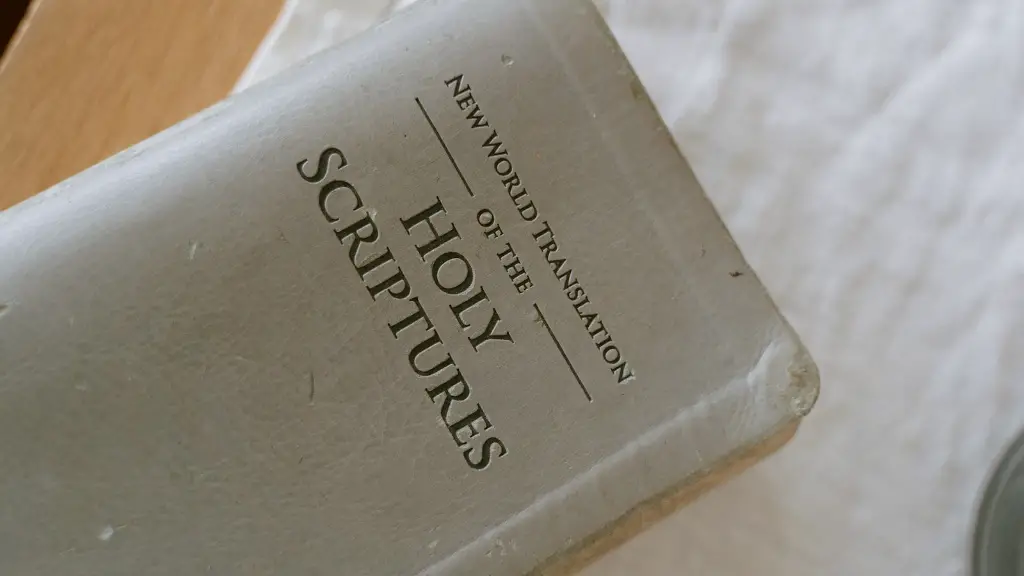In the early 1500s, Martin Luther began the Protestant Reformation in Europe, and one of the most significant changes Luther made was to remove books from the Bible. Removing the books from the Bible, or the Canon, was a controversial move, and it split the Christian world into two branches: Protestant and Catholic. So why did Protestants remove books from the Bible and what were the books removed?
The books removed by Protestants were referred to as the “Apocrypha,” and they were removed because they had been added to the Greek Old Testament by Alexandria Jews. Luther believed that the Apocryphal books were not inspired by God and thus not truly Scripture. He argued that the Apocryphal books should not be part of the Canon because they were not accepted by Jesus, the Apostles or the early Church. Luther’s views were eventually adopted by other Protestant churches, and the Apocryphal books were effectively removed from the Protestant Bible.
Today, many Christians have heard of the Apocrypha but never read it. The Apocrypha includes books such as the book of Wisdom, 1 Maccabees and 2 Maccabees, Tobit, Judith and the book of Baruch. These books contain inspiring stories and are filled with morals, so they offer valuable lessons to Christian readers. However, not everyone was happy with Luther’s decision to remove the Apocryphal books from the Bible.
Catholics were against Luther’s decision, as the books had been accepted as Scripture by the Catholic Church for centuries. They argued that the Apocrypha contained valid messages from God and contained teachings approved by Jesus himself. To this day, Catholics and Orthodox Christians believe that the Apocrypha is an inspired part of the Canon. While Protestants may disagree, many of them still read the Apocrypha to understand Christian history and derive spiritual insights from the works.
To sum up, Protestants removed the books from the Bible, or the Canon, as part of the Reformation. They argued that the Apocryphal books were not inspired by God and thus not truly Scripture. Luther’s views eventually became the standard Protestant view, and the Apocryphal books were removed from the Protestant Bible. Catholics and Orthodox Christians, however, continue to accept the Apocrypha as an inspired part of the Canon.
The Differences Between The Catholic and Protestant Versions of The Bible
The Catholic Bible includes several books that are absent from the Protestant Bible. Apart from the Apocrypha, the Catholic Bible includes several other books, such as 1 and 2 Esdras, several books of Maccabees, and several other books from the Old Testament. These books were originally written in Greek and were traditionally accepted by Catholics as part of the Canon, whereas Protestants have rejected them. Thus, the Catholic Bible is about seven to nine books larger than the Protestant Bible.
In addition to the books, there are also several differences in wording between the Catholic and Protestant versions of the Bible. For instance, the Protestants have removed the book of Judith, which was in the original Greek, so the wording and structure of the verses about the book of Judith in the Catholic Bible are different from the verses in the Protestant Bible. Similarly, the Catholic Bible includes books such as Tobit and the Wisdom of Solomon, which are absent from the Protestant Bible.
Moreover, the Catholic and Protestant versions of the Bible also differ in the New Testament. The Protestant version of the Bible includes several passages that the Catholic version does not, such as verses from Luke and Mark concerning the nature of salvation. The Protestant version also includes more verses concerning the power of faith and the role of the Holy Spirit.
Finally, there are differences in the wording and structure of the books in the Catholic and Protestant versions of the Bible. For example, the Catholic Bible includes the book of Esther, which is written in a different style than the book of Esther in the Protestant Bible, and the Catholic Bible has several books that are absent from the Protestant Bible.
The Historical Context of Protestants Removing Books From The Bible
The removal of books from the Bible was part of a wider movement called the Reformation. This movement was a response to the Catholic Church’s doctrines, teachings and practices, which Luther and other Reformers felt were unbiblical and incompatible with the message of the gospel. The removal of the books was done to bring the Canon in line with the Reformers’ views on Christianity.
The first step in the Reformation was the publication of the Ninety-Five Theses by Luther in 1517. This document set out Luther’s views on the need for reform within the Church. It was widely disseminated and sparked a period of debate and discussion between Catholics and Protestants. This eventually led to the break between the two branches of Christianity and the subsequent formation of the Protestant Church.
In 1522, Luther published his German translation of the Bible which included his preface on the Apocrypha, in which he discussed his reasons for removing the books from the Bible. At the same time, other scholars and theologians were forming their own views of Christian doctrine, and many Protestants were influenced by Luther’s preface on the Apocrypha.
In the 1530s, Protestant seminaries and universities started to train pastors and theologians in the Protestant faith. This training included instruction on why the books had been removed from the Bible, which further spread the Protestant view on these books. By the time of Luther’s death in 1546, the doctrine of the Protestant church had been fully established, and the removal of the books from the Bible had become an accepted part of Protestant practice.
The Impact of Protestants Removing Books From The Bible
Removing books from the Bible has had a deep and lasting impact on Christianity. On the one hand, it has given Protestants a clear sense of what books to follow, and it has helped them to distinguish their beliefs from the beliefs of the Catholic Church. On the other hand, it has split Christianity in two and caused a great deal of tension between the two branches.
The removal of the books has limited the understanding of the Christian faith that Protestants have access to. Many of the stories and teachings in the Apocryphal books are inspiring and important to understanding the New Testament, and yet Protestants have no access to these books. Furthermore, by rejecting the Catholic Church’s authority over the Canon, Protestants have cut themselves off from centuries of Christian tradition.
On the other hand, the removal of the books has helped to unite Protestant Christians. It has given them a clear sense of what books are inspired by God and are thus valid for use in devotions and in teaching. This unity has been crucial to the growth and spread of Protestantism, and it has helped to keep the movement vibrant and relevant in the modern world.
The Significance of Protestants Removing Books From The Bible
The removal of books from the Bible was an important step in religious reform and the establishment of the Protestant Church. By removing the books from the Canon, the Reformers were able to create a sense of unity and clearly distinguish the beliefs of Protestantism from those of Catholicism. The removal of the books has also had a deep and lasting impact on Christianity and has limited the understanding of the Christian faith that Protestants have access to.
The removal of the books also had a practical effect on the survival of Protestantism. By creating a sense of unity and a distinction between the beliefs of the Protestant and Catholic churches, the Reformers secured the future of Protestantism. Today, the books removed from the Bible still serve to remind us of the Reformation and the importance of standing firm in our faith.
The Legacy of Protestants Removing Books From The Bible
The legacy of Protestant rejection of Apocryphal books can still be seen today. Protestant Bibles do not include these books, and Protestants generally do not consider them to be part of the Scriptures. On the other hand, Catholics and Orthodox Christians continue to use the books as part of their interpretation of the Bible. The books of the Apocrypha are also still studied and quoted, though primarily in academic and scholarly contexts.
Moreover, the legacy of the Reformation has shaped the beliefs and practices of Protestant churches today. Protestantism is still seen as a movement of religious reform, and the doctrines laid out by Luther and his contemporaries still form the basis of many Protestant churches. Protestants are also often wary of dogmatic statements and are keen to emphasize freedom of thought and individual conscience.
Finally, the removal of books from the Bible still affects Christian ecumenism today. Catholics and Protestants still have very different views on the value and worth of the books in the Apocrypha, and this difference of opinion continues to be a stumbling block on the path to unity. Despite the differences, there is still hope of fostering a spirit of cooperation and understanding between the two branches.
The Value of Protestants Removing Books From The Bible
Ultimately, the removal of books from the Bible has had a powerful effect on Christianity. By rejecting the books, the Reformers were able to make a clear distinction between Protestant and Catholic beliefs and practices. The books also serve as an important reminder to Christians of their commitment to religious reform, and their importance in the history of the Church cannot be overstated. As Protestantism continues to evolve and expand in the modern world, the books will continue to be an important part of our faith.
At the same time, it is important to remember that there is much value in the books that were removed from the Bible. The stories and teachings in the Apocrypha offer valuable insights into our faith, and they provide us with much needed spiritual guidance. Even though they are not part of the Canon, these books continue to be read and studied by Christians of all stripes.
In short, the books that were removed from the Bible by the Reformers still have a great deal to offer to readers and scholars today. The books are valuable both as historical artifacts and as spiritual sources of insight. Despite their removal from the Canon, they remain an important part of our Christian heritage.





